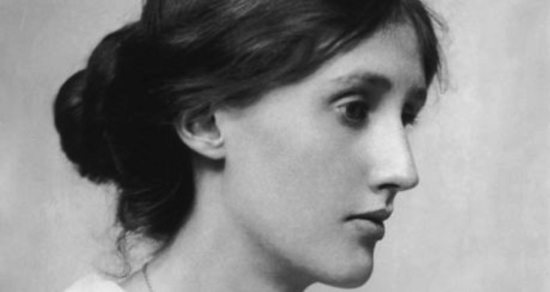THIS WEEK’S MUSE

VIRGINIA WOOLF
“Language is wine upon the lips.”
Virginia Woolf was an English writer and, because of her distinctive narrative style, is considered one of the most important modernist authors of the 20th century.
In 1882 Woolf was born into an affluent, forward-thinking family living in a large townhouse in central London. A “very tall house,” wrote Woolf, “so rickety that it seems as if a very high wind would topple it over.” The family also had a summer residence, in St. Ives on the west coast of England. This was a far cry from the city with gardens, an orchard, and wild-weather views of the Atlantic Ocean. Across the bay and visible from Woolf’s bedroom was Godrevy Lighthouse, the central metaphor in her 1927 novel To the Lighthouse.
As a child Woolf showed an early affinity for writing and by the age of five was an accomplished letter writer. Later she and her sister—renowned artist Vanessa Bell—wrote a family ‘magazine,’ filling it with invented stories about their neighbors, about nighttime in the nursery, or about spirits that roamed the garden. “Ever since I was a little creature,” she later wrote, “scribbling a story in the manner of Hawthorne on the green plush sofa in the drawing room at St. Ives while the grown-ups dined.”
Typically for a woman in Victorian England, Woolf didn’t attend school. Both her parents disapproved of formal education for females, but writing was considered a respectable—and socially acceptable—female pursuit, and her parents encouraged their daughter to continue. She was also given complete access to her father’s library – one of the most comprehensive in the country. This was a privilege she fully embraced, and grew up with a deep understanding of the finest literature, philosophy and opinion of the day. An education to rival any school or university.
Throughout her life, Woolf is thought to have suffered with what is now called bipolar disorder. To varying degrees, it affected her family life, her career, and her marriage. In particular, it impacted on her writing and writing style. She was one of the first writers of the modernist period to write using an interior monologue – enabling the reader to witness the innermost thoughts of her characters, and to utilize a stream of consciousness – creating a flow of apparently unconnected ideas, images, and events within the narrative. Many argue though she writes in prose, her employment of these techniques moves her writing closer to poetry. Stepping into Woolf’s literary world can be a commitment but embrace her unique literary style and be carried into her expansive linguistic world, and the experience is as rewarding as it is challenging.
“Fiction is like a spider’s web, attached ever so slightly perhaps, but still attached to life at all four corners. Often the attachment is scarcely perceptible.”
She had often talked of death and dying as a solution to her state of mind. In March 1941, this came into sharp focus again. After writing a note to her husband, Woolf filled her deep overcoat pockets with heavy stones and walked into the River Ouse near her home.
“Dearest, I feel certain that I am going mad again. I feel we can’t go through another of those terrible times. And I shan’t recover this time… Everything has gone from me but the certainty of your goodness. I can’t go on spoiling your life any longer.”
Today, Virginia Woolf is celebrated as one of the most important writers in 20th-century literature. Writers who have stated their work was influenced by Woolf include Margaret Atwood, Michael Cunningham, Gabriel García Márquez, and Toni Morrison. Her books and essays have had a significant impact on literary criticism, feminist and gender criticism, education, and social class. Ideas she came to label as the “Modern Age.”
“Every secret of a writer’s soul, every experience of his life, every quality of his mind is written large in his works.”
HAPPENING
GOURMET FOOD

Thursday, April 21, from 6–8pm
“Ukraine Benefit Dinner”
With Chef Joe Cizynski
A menu focusing on four restaurants in Kyiv. All proceeds will go to The World Central Kitchen #ChefsForUkraine
$100
DETAILS & TICKETS
